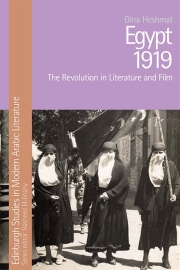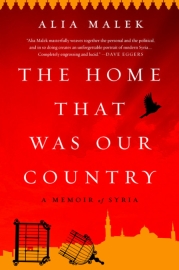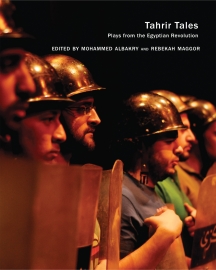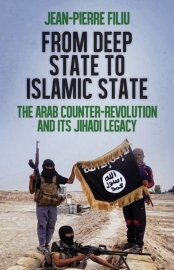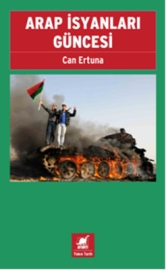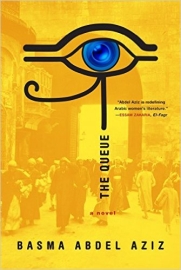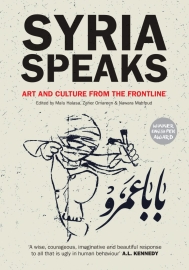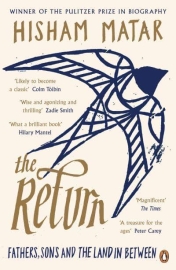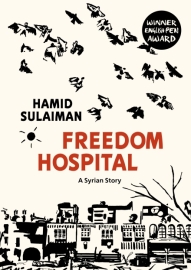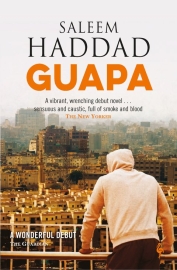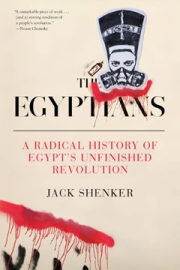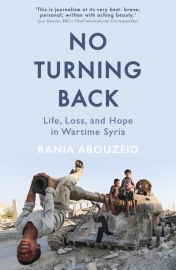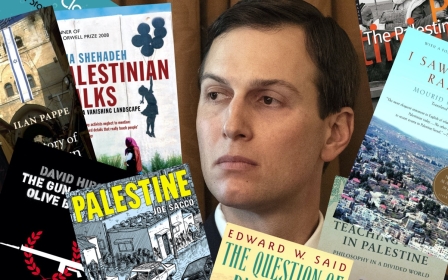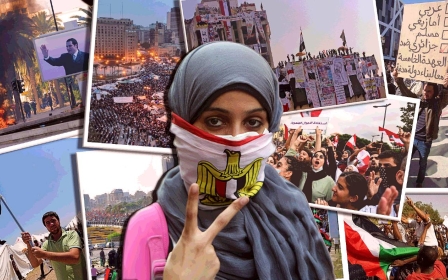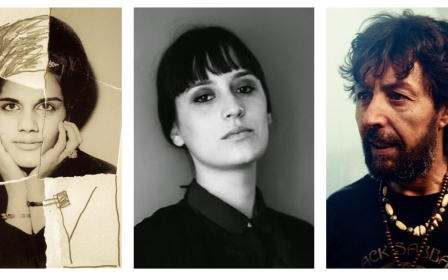12 books you need to read about the Arab Spring
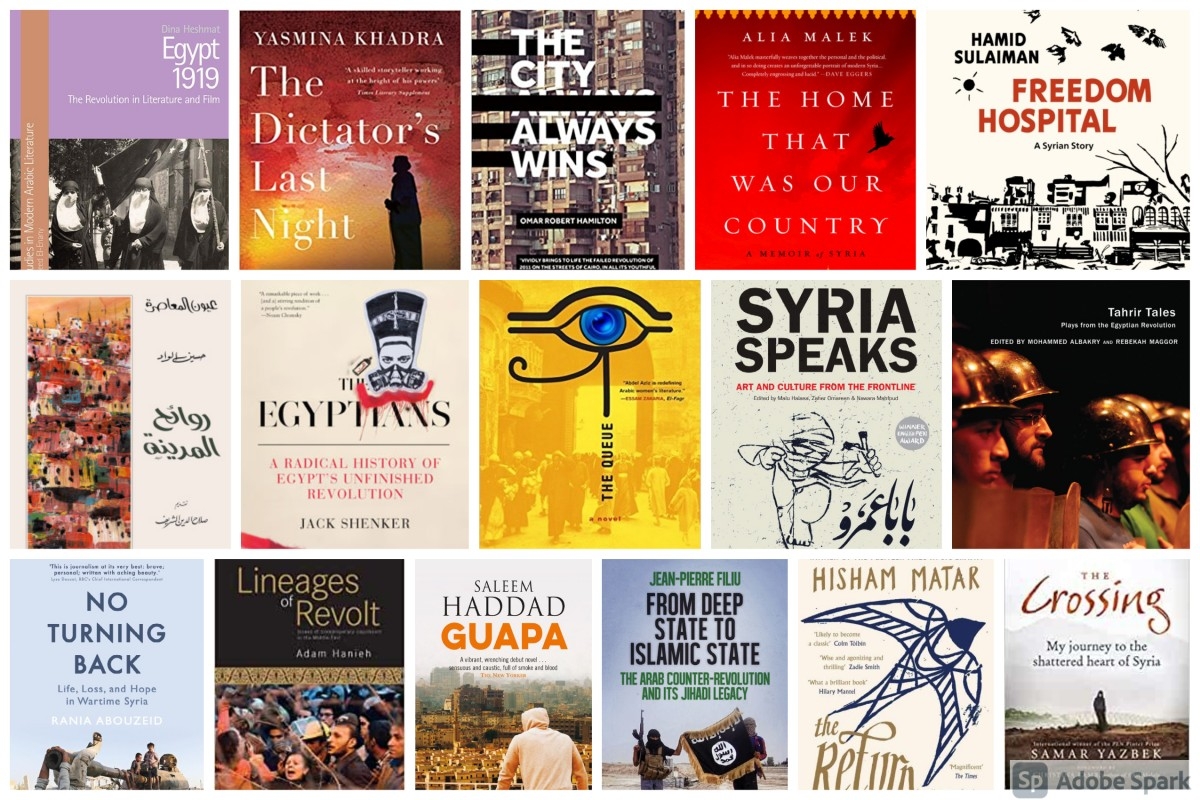
The "Arab Spring", as it is widely described, spawned so much literature that by 2013 Egyptian writer Youssef Rakha had dubbed it an "Arab Spring industry".
His assessment is confirmed by a quick Google search of the terms "Arab" "Spring" and "books", which returns 44 million results to wade through. The industry has also created an industry of its own - witness the number of academic papers analysing the impact of all this literary output.
But amid the many titles which have sought to capitalise on the tumultuous events of the past decade, it is reassuring to note those who have chosen instead to contextualise - not least Rakha's own trilogy "of the Arab Spring", which includes the novel The Crocodiles (published in 2014 by Seven Stories Press in Robin Moger's English translation), about a secret poetry club set in a period that culminates dramatically in the 2011 Egyptian uprising.
The books chosen here - hand-picked by Middle East Eye contributors and staff - range from incisive political analysis to fiction, drama, and collections of mixed media artwork; all seek to represent protest, revolution and war in its rawest form.
New MEE newsletter: Jerusalem Dispatch
Sign up to get the latest insights and analysis on Israel-Palestine, alongside Turkey Unpacked and other MEE newsletters
The books we have highlighted are not intended to be all-encompassing, nor to exclude any nation or its own revolutionary movement, but offer a snapshot of an ever-growing genre. Protests in Sudan, Algeria, Lebanon and Iraq are now producing their own list-worthy literature as the counter-revolution powers on, so the choices are endless.
Egypt 1919: The Revolution in Literature and Film
By Dina Heshmat / Chosen by Nada Elia
In early 2011, as she watched the removal of the graffiti that had been scrawled around Tahrir Square in the heady days of the popular uprising, followed by a “cleansing” of that space of revolt, Dina Heshmat realized she was witnessing the deliberate rewriting of history, a deletion of the people’s spontaneous discourse, to be replaced by a more elitist narrative.
Guided by this awareness, Heshmat sets out, in Egypt 1919: The Revolution in Literature and Film, (Edinburgh University Press, 2020) to re-examine the Egyptian revolution of the previous century, looking into the country’s archives to find unpublished novels and out-of-print articles that reflect the people’s mood during what she argues was the early 20th century’s equivalent of Egypt’s Arab Spring: a popular uprising against an oppressive regime by society’s poorest and most downtrodden classes, that was later claimed by the nationalist bourgeoisie.
She unearths layers of marginalised voices, of mostly women, peasants, and the working class generally, to demonstrate how “History” is always a selective re-writing, reflecting the values of the more privileged. She then brings this meticulous research to the present narrative of the events that gripped the nation in 2011, to again argue that history is often made by the poor, and written by the elite, but that readers seeking a more comprehensive story can and should look beyond the dominant narrative, to uncover the people’s experience.
Nada Elia is a diaspora Palestinian writer and political commentator, currently working on her second book, Beyond Apartheid: Notes from the Global Intifada.
The Home That Was Our Country: A Memoir of Syria
By Alia Malek / Chosen by Susan Muaddi Darraj
A great deal of the writing published about the Arab Spring tended to be straight political commentary, often by reporters unconnected to the region who painstakingly signalled the ways they were embedded in Arab life. Syrian American Alia Malek took a more personal, in-depth approach in her memoir, The Home That Was Our Country: A Memoir of Syria (Bold Type Books, 2017).
At the start of the revolution, Malek moved to Damascus to reclaim her grandmother’s apartment, which had been taken from her family during Hafez al-Assad’s rise to power, triggering her parents’ emigration to the United States. While rebuilding and making a home in the apartment, she reconnects with the local community, observing first-hand life under the dictatorship.
A talented journalist and civil rights lawyer, Malek also begins reporting on the optimistic, albeit turbulent beginnings of the revolution, gleaning insights and offering thoughtful analyses on the future of Syria.
This book is a must-read for anyone who wants an authentic account of life in Syria during the early days of the Arab Spring. Malek’s writing is rich, intelligent, and nuanced, providing layers of history and context in prose that reads like gorgeous storytelling.
Susan Muaddi Darraj's short story collection, A Curious Land: Stories from Home, has won several prizes including the 2016 Arab American Book Award and 2016 American Book Award. Her debut children’s series, Farah Rocks, is published by Capstone Books.
Tahrir Tales: Plays from the Egyptian Revolution
Edited by Rebekkah Maggor and Mohamed Albakry / Chosen by M Lynx Qualey
The massive protests in Egypt were also a collaborative performance. Tahrir echoed not only with protest chants but also with satirical monologues and singing, against a backdrop of witty signage and graffiti. These impromptu performances spawned several street-theatre projects, including al-Fann Midan, which was shut down by the Egyptian government in 2014.
Much of this performance was ephemeral, but Tahrir Tales: Plays from the Egyptian Revolution (Seagull Press, 2016), edited by Rebekkah Maggor and Mohamed Albakry, captures some of it.
This ten-play anthology includes single-author creations as well as collaborative works, such as The Tahrir Monologues, crafted by Sondos Shabayek and the BuSSy Project. The Tahrir Monologues was one of a number of documentary-theatre performances, and it collages together real-life protest experiences.
The plays in the collection were written between 2008 and 2014; two of them were performed just weeks after Mubarak was forced out of office. They include works that document the thrill of uprising, but also works of caution and despair. As a character in Ibrahim al-Husseini’s Comedy of Sorrows (July 2011) says, “The head of the snake has fallen, but its body throbs with life. The wall of fear has fallen, but scores of other walls remain.”
M Lynx Qualey is an editor and critic who founded the 'ArabLit' website (www.arablit.org), which won a 2017 London Book Fair prize. Her most recent translation, of Sonia Nimr's Wondrous Journeys in Strange Lands, appeared in December 2020.
From Deep State to Islamic State: The Arab Counter-Revolution and its Jihadi Legacy
By Jean-Pierre Filiu / Chosen by Simon Hooper
I remember devouring From Deep State to Islamic State: The Arab Counter-Revolution and its Jihadi Legacy (Oxford University Press, 2015) by Jean-Pierre Filiu when I started working at Middle East Eye in 2015. Its starting point is not so much the Arab revolutions of 2011 as the counter-revolution which by then had quashed much of the hope and transformative energy surrounding those events, most notably in what he calls Egypt's “summer of blood” when the massacre of hundreds in Rabaa Square in 2013, amid international indifference, consolidated Abdel Fattah el-Sisi's grip on power, and steadily increasing death tolls and the displacement of millions in Syria and Yemen.
A veteran scholar of Middle Eastern affairs, Filiu chides himself for having underestimated the readiness of deep-rooted security states to “literally burn down their country” in order to hold onto power. He presents the rise of the Islamic State group in part as a consequence of the deliberate release of hardline militants from Syrian prisons and the willingness of both Bashar al-Assad and then-Iraqi prime minister Nouri al-Maliki to stoke sectarian violence in their own interests.
Still, Filiu cannot completely suppress his internal optimist. “The Arab revolution is far from over,” he writes, “and the next activist generation will have learned the hardest way possible how to confront such ruthless adversaries.”
Simon Hooper is Head of Investigations at Middle East Eye.
Arap Isyanları Guncesi
By Dr Can Ertuna / Chosen by Nimet Kirac
The contextualization conflict begins right at the start of Dr Can Ertuna's Arap Isyanları Guncesi, or Arab Uprisings Diary, which was published by Ayrıntı Yayınları in 2014. Was it a "Spring", or a series of uprisings in the Arabic landscape that Turkey watched from above? Penning his reflections after inhaling the smell of a charred corpse, engulfed in the fog of smoke following clashes in 2011 Libya, the author told himself: “Whatever this is, it’s not a Spring.”
Ertuna, a seasoned war correspondent and a lecturer who continues his journalistic career on a freelance basis from Istanbul, reported on these loud, proud and increasingly bloody and painful civic movements in Tunisia, Egypt, Libya, and, finally, Syria, for Turkish audiences via live-shots and news packages for years. Meanwhile, Turkey itself was drifting towards its own complex post-Gezi protests phase from 2013.
Yet Ertuna’s book is more than just a vivid compilation detailing his observations of a period of time, with additional historic background. The shock, excitement, awe and fear that he felt through years of assignments covering the squares and the rubble-filled streets, consumed with crowds, chants and loud explosions, are laid on the line, complemented with personal, illuminating anecdotes.
More than simply a record, through Ertuna’s contemplations and accompanying photographs the book encompasses the vivid experiences of a writer whose sharp, intuitive journalism leaves readers buoyed on the wave of mass regional change.
Nimet Kırac is a multimedia journalist based in Istanbul who covers Turkey-linked social and political affairs, breaking news, and natural and cultural heritage stories.
The Queue
By Basma Abdel Aziz / Chosen by Joseph Fahim
There has been no shortage of insightful studies of the January 2011 Egyptian popular uprising and its aftermath, Jack Shenker’s The Egyptians and Omar Robert Hamilton’s The City Always Wins (Faber, 2017) to name a few. My pick is somewhat left field: Basma Abdel Aziz’s dystopian satire, The Queue.
Written in the wake of the Muslim Brotherhood’s rise to power and prior to the military coup of 2013, Abdel Aziz already deems the revolution a failure, painting a Kafkaesque portrait of a highly oppressive state where citizens have no willpower and no rights. Tackling some of the most pertinent issues of its day – the cannibalistic bureaucracy, institutional corruption, and sweeping, brain-washing propaganda – The Queue (published in Elisabeth Jaquette's English translation by Melville House in 2016) is both an incisive document of the growing despair and frustrations of post-2011 Egypt, and an eerily prophetic imagining of the looming despotism that would render the revolution nothing but a distant, forgotten memory.
Tunisia’s Jasmine Revolution similarly spawned a multitude of literary work dissecting and detailing the events that led to that country's mass protests of 18 December and its aftermath. The standout book for me is the longest, and the most epic: The Scents of the City trilogy (2010-2018) is the magnum opus of renowned academic and critic-turned novelist, Hussein El-Wad, who passed away in 2018 shortly after the release of the final installment of the series.
Spanning several decades, beginning with the independence years and concluding with the post-independence period, each part of the trilogy is anchored by a different narrator with a different narrative structure. Each part explore the various changes and upheavals that rocked Tunisia over 70 years, and each provides a deeply humane yet sober analysis on the elusive Tunisian psyche.
The last book of the trilogy, El Ghorban (The Crows), is the most cynical, and possibly the most powerful, stripping the revolution from its former idealism and presenting a stark denouncement of the dwindling role of the intellectual at a time and a place they no longer belong to.
Joseph Fahim is an Egyptian film critic and programmer. He is the Arab delegate of the Karlovy Vary Film Festival. He has contributed to Middle East Institute, Al Monitor, Al Jazeera, Egypt Independent and The National (UAE), among others.
Syria Speaks: Art and Culture from the Frontline
Edited by Malu Halasa, Nawara Mahfoud, Zaher Omareen / Chosen by Vittoria Volgare Detaille
Syria Speaks: Art and Culture from the Frontline (published by Saqi, 2014) features the works of more than 50 artists and writers who document the beginning of the Syrian uprising and use culture as a tool to protect the country from the tyranny of Assad’s regime, and from extremism.
Literature, cartoons, illustrations, paintings, photographs and films are showcased here with contributions from cartoonist Ali Ferzat, illustrators from the anonymous collective Comic4Syria, artists Sulafa Hijazi, Mohammad Omran and Khalil Younes, writers Khaled Khalifa, Samar Yazbek, Robin Yassin Kassab and poets Golan Haji and Farah Bayrakdar amongst others.
Scenes of violence are omnipresent in the book. What started as a peaceful uprising against the regime in 2011, turned into a militarised conflict by 2012. The digital prints of Sulafa Hijazi explore the cycle of devastation in Syria, but they could relate to any other conflict situation.
“The repressive violence of the state has generated a violent reaction against it,” Hijazi writes - a point poignantly put forth by the prints in the collection: Untitled (2012), shows soldiers on a luna park wheel shoot at each other; in Birth, a pregnant man lying on the floor gives birth to all kinds of weapons, and Masturbation (2011) shows a naked and faceless soldier touching himself while watching TV images of street protests.
A book I devoured in one sitting was The Dictator’s Last Night (published by Gallic Books, 2015) in which Algerian Yasmina Khadra fictionalises the final hours of the life of the late Libyan ruler Muammar Gaddafi. Khadra, a female pseudonym for ex-military officer and bestselling writer Mohammed Moulessehoul, uses poetic prose to express the last thoughts and doubts of the dictator abandoned by his people. While he is hiding with some loyal guards in a disused school in Sirte in October 2011, hoping to escape the rebels, Gaddafi reflects on his life, childhood, first loves, obsessions, and his rise to power. He is portrayed as a cruel delusional megalomaniac who thinks he is the “chosen one” but nevertheless appears in all his frailty.
In one memorable monologue, Gaddafi declares: “I am Muammar Gaddafi. That should be enough for faith not to waver. I am him through whom salvation will come. ... God is with me! Has He not chosen me, of all men, to stand up to the most powerful nations and their hegemonic greed? I was no more than a young and disillusioned officer, whose commands barely rose above a whisper, but I dared to say no to their faits accomplis, to cry 'Enough! 'to all their abuses, and I changed the course of destiny the way you turn over the cards you refuse to deal”.
The Crossing, My Journey to the Shattered Heart of Syria (Rider Books, 2015, translated by Ruth Ahmedzai Kemp and Nashwa Gowanlock) is the moving testimony of Samar Yazbek, Syrian writer and critic of Assad. Living in exile since 2011 in France, she clandestinely and bravely returned to her devastated homeland several times between 2012 and 2015 to witness and show the world the humanity of families and activists surviving the brutality of the regime.
Vittoria Volgare Detaille is a journalist and translator. After having studied Arabic Literature at the University of Napoli “L'Orientale”, she collaborated with the United Nations Development Programme (UNDP) and with the Italian Press Agency ANSA.
The Return
By Hisham Matar / Chosen by Daniel Hilton
On his first flight to Libya since 1979, Hisham Matar’s mother made him sit in the window seat. “To see your country,” she told him.
Below was a land “the colour of newly healed skin” and bubbling up inside him was a sense of panic, and memories of a father who’d disappeared into Muammar Gaddafi’s prisons.
Matar’s Pulitzer Prize-winning The Return (Penguin, 2017) is a lot of things. It’s a memoir of a youth in displacement, a first-hand account of that confused and hopeful moment after Libya’s revolution toppled Gaddafi, and an honest reflection on father-son relationships.
In mixing past and present, political and personal, Matar has written a textured, revealing and philosophical book that artfully pulls together many strands of life and history.
Reading The Return, you can be under no illusions of the poison that Gaddafi inflicted on his people: Matar’s father was an opposition leader snatched off Cairo’s streets with Mubarak’s blessing. Visiting relatives in Ajdabiya, the author finds distrust has even transformed the way houses have been built, prioritising privacy and security over light and openness as in his youth.
But essentially, his memoir is a book about humanity, dignity and questions raised in extraordinary moments that may not always find an answer.
Daniel Hilton is Senior News Editor at Middle East Eye.
Freedom Hospital
By Hamid Sulaiman / Chosen by Nick Hunt
Comic-book writer Hamid Sulaiman fled Syria in August 2011, when the civil war was less than a year old. He wrote Freedom Hospital (published in 2018 by Interlink Books and translated by Francesca Barrie), about an imaginary medical centre in a small northern Syrian town less to explain the conflict, more as an act of catharsis. “I needed to give voice to everything that had been stuck in my throat since the beginning of the revolution” he writes in the book’s postscript.
The result is a compelling mixture of fact (some of the images are adapted from Youtube footage of attacks) and narrative, as Sulaiman traces the fates of a dozen characters during the course of 2012; their loves, lives and deaths.
As with all comic books, moments – a birth, a death, a meeting, a farewell – are frozen on the page, to be absorbed and contemplated, rather than hurrying the audience onto the next stage.
What compels more than anything is the artwork, which is perversely bleached-out black and white for a conflict that is bedevilled by complexity and scale.
Freedom Hospital may lack the detail of say Joe Sacco (who contributes back-cover recommendation). Backgrounds and landscapes are not always evident, while action is almost scored and scratched onto the page at times. A sequence when a Syrian government helicopter drops its load of barrel bombs is reduced to a series of near-abstract blots on a page.
But this belies the subtely and freshness at work here. At times Sulaiman pays subtle homage to the likes of Henri Matisse (at one point protesters link hands like the dancers in the painting Dance) and Roy Lichtenstein (an explosion has echoes of his work Whaam!).
And as the conflict stands on the verge of its second decade, this rawness shatters our acceptance and tolerance of this most visceral conflict to present its pain anew.
Nick Hunt is Managing Editor of Middle East Eye.
Guapa
By Saleem Haddad / Chosen by Chloé Benoist
Saleem Haddad’s debut novel, Guapa (Europa Editions, 2016), follows its protagonist, a young Arab man named Rasa, over the course of a long 24 hours after his grandmother catches him in bed with another man. A deft exploration of shame and identity, it’s the author’s exploration of the incandescent hope of revolution and its sobering aftermath that feel particularly appropriate to revisit ten years after the Arab Spring.
Six months after a popular uprising was brutally quelled by the regime in this unnamed country, the situation has only worsened, with the government is using “the fight against terrorism” to tamp down on dissent and solidify its hold on power. Rasa works as an interpreter for a journalist interviewing an Islamist dissident, while trying to locate a friend violently arrested in a police raid on a gay cruising spot. The novel explores the chasms between the many components of popular resistance against the government - who, while they do not see eye-to-eye, are all scapegoated by those seeking to maintain their grip on power.
Given the Kuwait-born author’s own mixed Palestinian, Iraqi, Lebanese and German heritage, it feels fitting that the setting for this novel be an unnamed Arab city, borrowing freely from many locations in the Middle East to speak to broader issues. The events Guapa’s characters experience are familiar to those who have lived under the region’s many oppressive regimes - at times keeping their heads down in order to ensure their survival, at others fighting in big and small ways for their freedoms.
While the uprising in Haddad’s novel did not unseat the longstanding ruler, Guapa manages to capture the liberating realisations of revolt. “Until then we had all accepted that this was how it was, there would not be anything to look forward to, we either had to get away or die trying,” he writes. “But as I held the leathery hand of a curly-haired trade union activist, I realized that being cold and wet together was better than being warm and dry in the richest country in the world.”
For countless unnamed demonstrators in 2011 and beyond who fought against incredible odds, this line might ring true: “I chanted and I thought of power and imperialism, and I realized that it was all linked, that challenging lies and oppression was also fighting on behalf of love."
Chloé Benoist is News Editor at Middle East Eye.
The Egyptians
By Jack Shenker / Chosen by Alex McDonald
Jack Shenker’s book, The Egyptians (published by Allen Lane, 2016) is a work of journalism - rather than an academic text - which looks at the base that spawned the anti-government movement and the economic and political factors that eventually galvanised millions in favour of a better life.
A range of social movements focusing on women’s rights, workers’ rights, anti-poverty campaigns, LGBT rights and campaigns against gentrification, coalesced in opposition to a system which had overseen the immiseration of huge swathes of the country through “reforms” mandated and praised by international organisations and foreign powers.
Shenker’s first-person reporting on one of the 21st century’s pivotal events is unparalleled and should be recommended for anyone interested in Egypt or the nature of revolution.
Many leftists and Marxists profess an interest in the Middle East but few are willing to put in the legwork to actually apply a serious Marxist analysis to the states that make up the region.
Adam Hanieh’s work, Lineages of Revolt (published by Haymarket Books in 2013), looks at how the intersections of class, state-building and imperialism brought the countries of the Levant and the Gulf to where they were by the early years of the 21st century and how wars, the 2008 financial crisis and decades of neoliberal “reform” created the conditions for the 2011 uprisings.
Rather than indulging Orientalist fantasies about cultural or religious exceptionalism, Hanieh presents a clear materialist explanation for why rebellion and revolt have become facts of life in the region.
Many of the accounts of arguably the central event in the Arab Spring uprisings, the overthrow of Egyptian President Hosni Mubarak and the subsequent struggle for democracy in the country, focus on the campaign for free and fair elections and the desire for other facets of liberal democracy, while paying little attention to the wider causes and structural problems that resulted in the uprising.
Alex MacDonald is a reporter at Middle East Eye.
No Turning Back: Life, Loss, and Hope in Wartime Syria
By Rania Abouzeid / Chosen by Areeb Ullah
The suffering in Syria seems never-ending. Ten years of fighting has destroyed a country and displaced millions. For many, the Syrian civil war has become background noise with the human stories of hope and heartbreak forgotten.
Journalist Rania Abouzeid's No Turning Back: Life, Loss, and Hope in Wartime Syria (published by Oneworld Publications in 2018) is a definitive guide to understanding the human impact of Syria's civil war. Abouzeid follows a set of characters, with her meticulous prose giving readers an insight into her subject's mindset and how it motivated their actions over five years.
It exposes the reader to the hopes felt by many during the 2011 protests and how Bashar al-Assad's secret police tried to break its population's spirits by beating and imprisoning its citizens to submission.
But while it lacks voices from the government side due to a lack of access that were out of Abouzeid's hands, she shows the world why many continue to fight and hope for a free Syria - even from afar.
Areeb Ullah is a journalist for Middle East Eye.
Editor's note: In an earlier version of this story we erroneously described Rania Abouzeid as a former journalist. To be clear, she is still working as a journalist: her updates can be found here. We apologise for any confusion caused.
Middle East Eye delivers independent and unrivalled coverage and analysis of the Middle East, North Africa and beyond. To learn more about republishing this content and the associated fees, please fill out this form. More about MEE can be found here.


